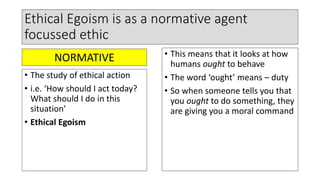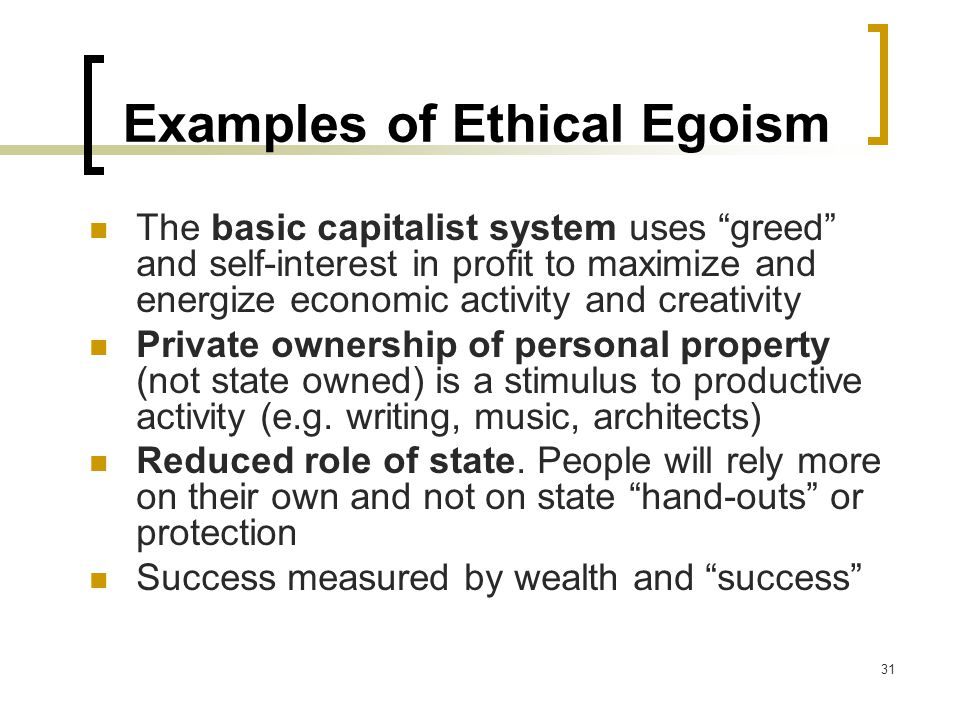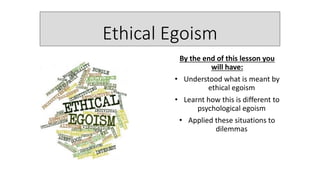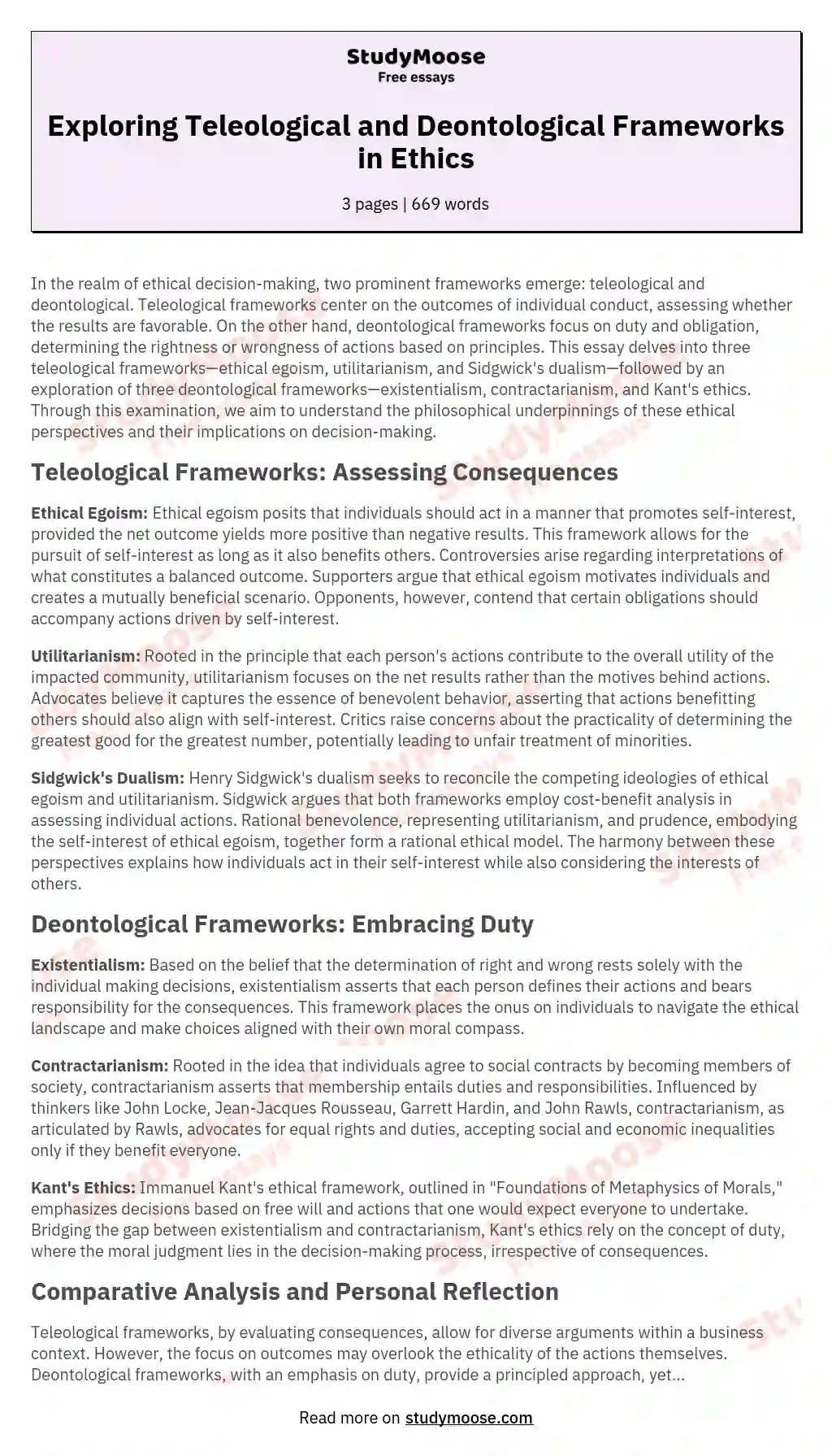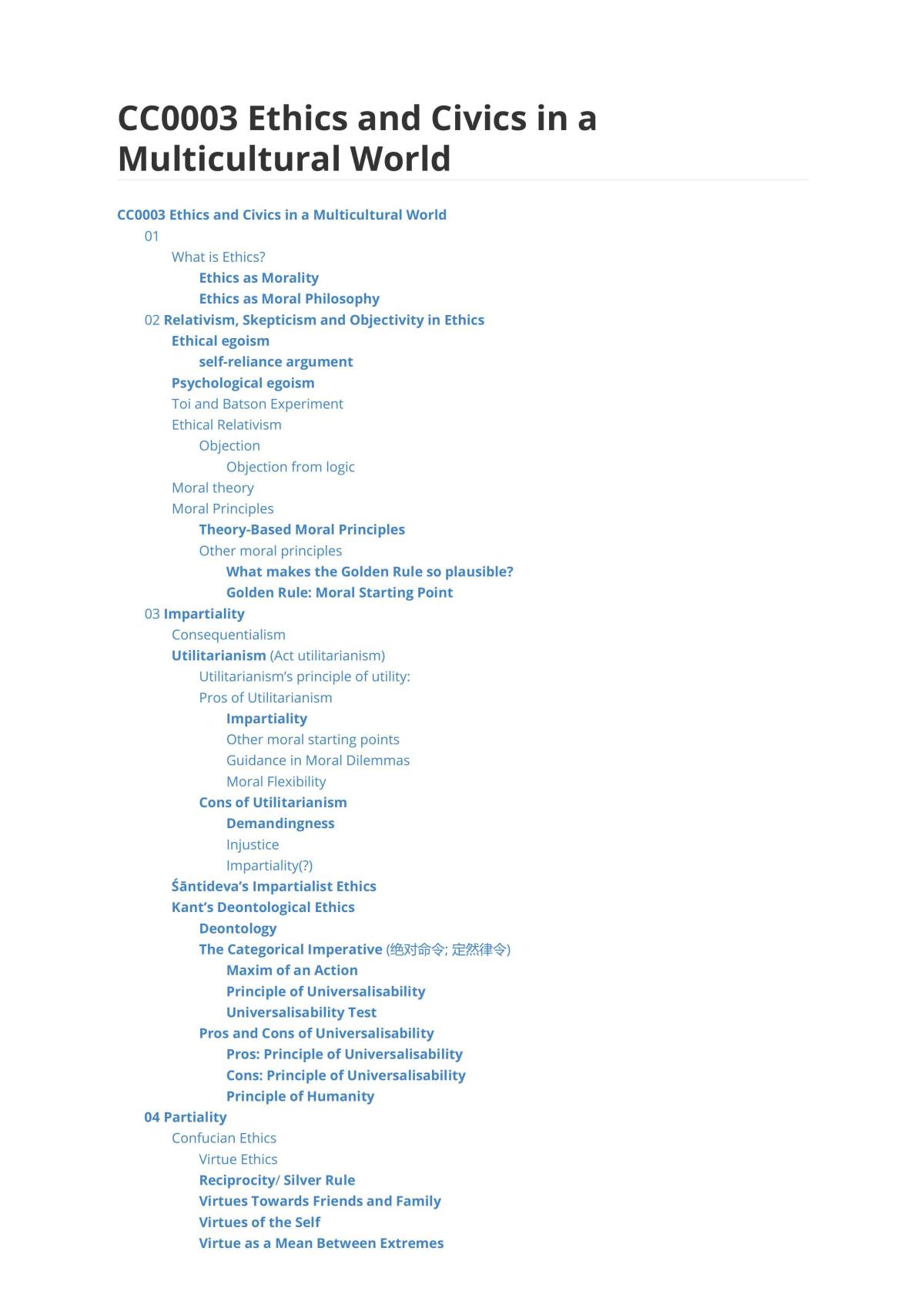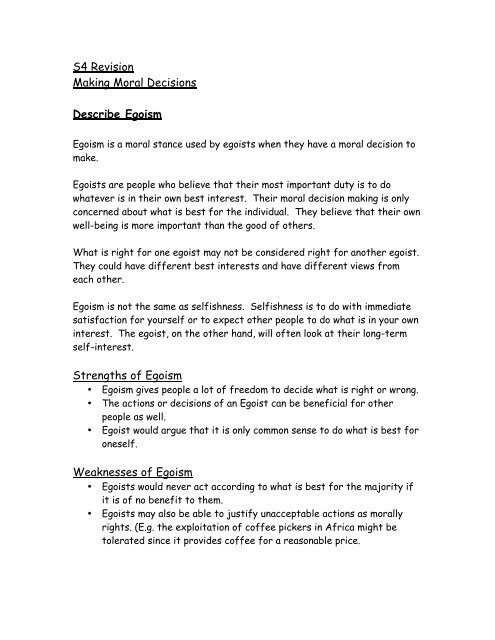Ethical egoism is a philosophical theory that holds that the promotion of one's own self-interest is the morally right course of action. According to this perspective, an action is ethical if it leads to the greatest amount of personal benefit or happiness for the individual who performs it. While this theory has some appealing aspects, it also has some significant drawbacks that need to be considered.
One of the main arguments in favor of ethical egoism is that it is a rational and self-interested approach to decision-making. By prioritizing one's own well-being and happiness, an individual can make choices that are in their own best interests and are likely to lead to a better life for themselves. This can be particularly appealing in a world that often seems unpredictable and unfair, as it provides a way for individuals to take control of their own lives and pursue their own goals.
Another argument in favor of ethical egoism is that it recognizes the inherent value of the individual. This theory holds that each person has the right to pursue their own happiness and well-being, and that this is a fundamental aspect of what it means to be human. By prioritizing their own interests, individuals can live a more fulfilling and meaningful life, and this is something that is worthy of moral consideration.
However, there are also several arguments against ethical egoism that need to be considered. One of the main criticisms of this theory is that it is fundamentally selfish and self-centered, and that it ignores the needs and well-being of others. According to this perspective, ethical egoism fails to recognize the importance of relationships and the value of caring for and helping others.
Another criticism of ethical egoism is that it can lead to a lack of concern for the common good. By prioritizing their own interests above all else, individuals may be more likely to engage in behaviors that harm others or that undermine the well-being of society as a whole. For example, an individual who is motivated solely by their own self-interest may be more likely to engage in activities that harm the environment, or to take actions that are detrimental to the overall welfare of their community.
Finally, ethical egoism may be difficult to reconcile with certain moral values and principles, such as fairness, justice, and equality. For example, if everyone were to adopt an ethical egoistic perspective, it is likely that the needs and well-being of some individuals would be ignored or overlooked in favor of the interests of others. This could lead to a society that is highly inequitable and unjust, and that fails to recognize the inherent value of all individuals.
In conclusion, ethical egoism is a philosophical theory that has both its supporters and its detractors. While it may offer a rational and self-interested approach to decision-making, it also has significant drawbacks, including a lack of concern for others, a potential lack of concern for the common good, and difficulties in reconciling it with certain moral values and principles.
